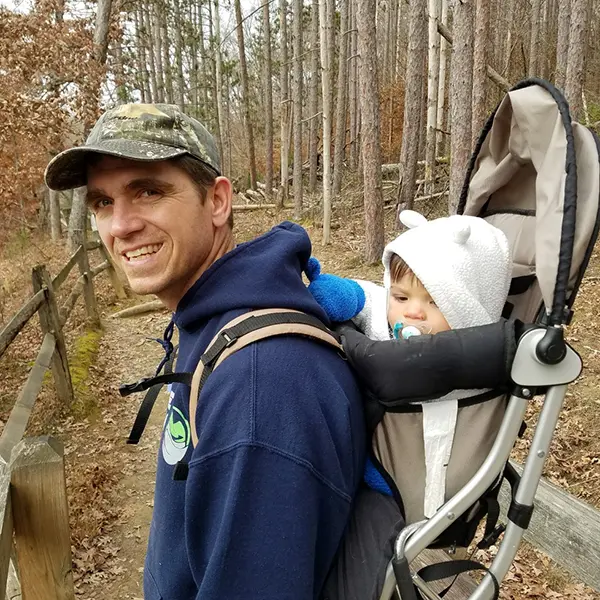-
-
- Financial Aid
- Financial Aid
- Scholarships
- Loans
- Grants
- Federal Work Study
- Additional Resources
-
After graduation, I moved back home to Indianapolis and found a temporary staffing position at Dow AgroScience. I was responsible for working with their genetically engineered crops in the greenhouse. After two years, I gained employment with INDOT's Environmental Assessment section. I left after two years, and began working on a master’s degree at Ball State working on a wetland fen north of New Castle, IN. Following the completion of my graduate degree, I got a job at JFNew, a private consulting firm in Indianapolis. My primary responsibility was regulated waters delineation, assessments, and occasional wetland mitigation monitoring. I have worked on projects throughout the Midwest. I have been doing this for almost 16 years now. I married my Taylor sweetheart in the spring of 2002. We moved to the New Palestine area where I grew up. We have three kids, a seven year old daughter we adopted, a four year old son, and a 17-month old son. We attend the same church that I grew up in. I have lived in the same township all my life. My hobbies are botany, bird watching, running, hiking, gardening, and reading.
I was able to work with Dr. Rothrock during the summer. I worked on the botanical aspect of the Indiana Wetland Rapid Assessment Protocol (InWRAP). Being able to work with Dr. Rothrock and other professors on this project was transformational. It was the groundwork for my career.
My Taylor major professors were all instrumental in my professional development. Dr. Paul Rothrock was particularly inspiring. I wish I could have soaked up even more knowledge from him.
The more distance I have from my Taylor graduation, the more I realize how my education was just beginning. Taylor was a foundation for my future studies and career.
Get into the field and work with someone who does what you think is interesting. If necessary, volunteer somewhere to get experience doing something that you are passionate about. Spend time with experts. Try to obtain a variety of experiences. If you are interested in plant ecology/taxonomy, try to get experience working with endangered, threatened or rare species (ETR). Learn as much as you can.

